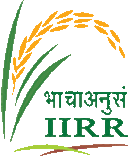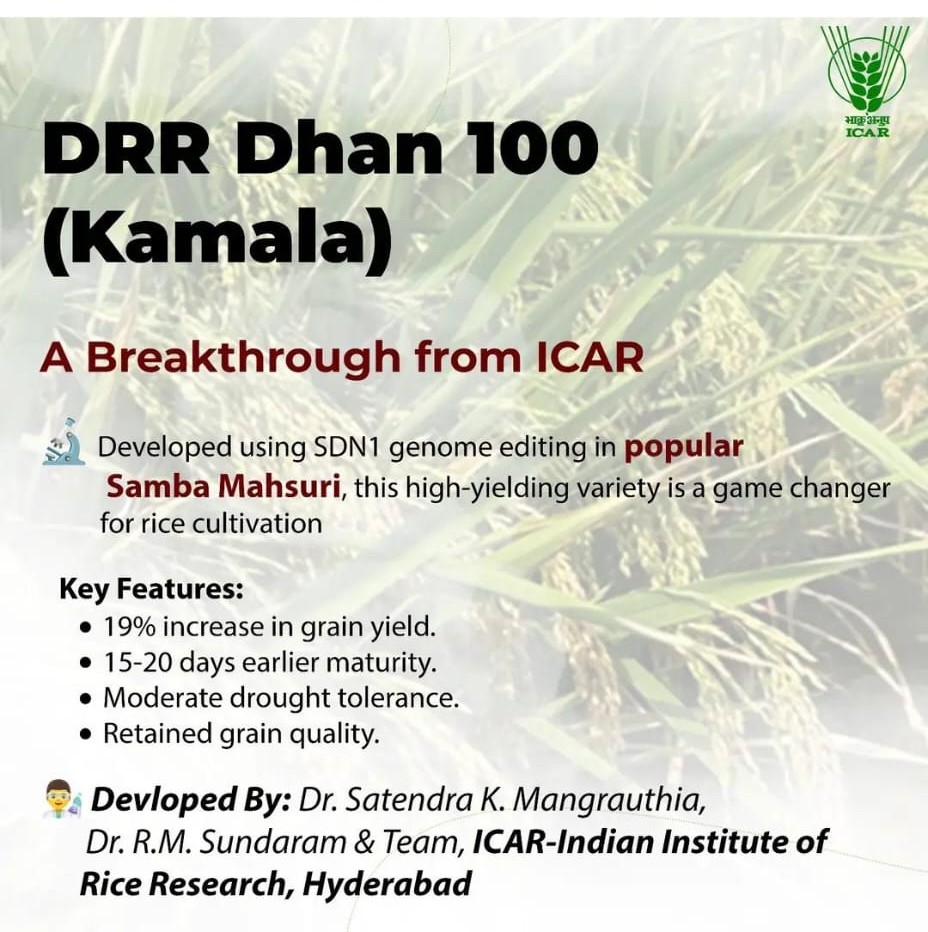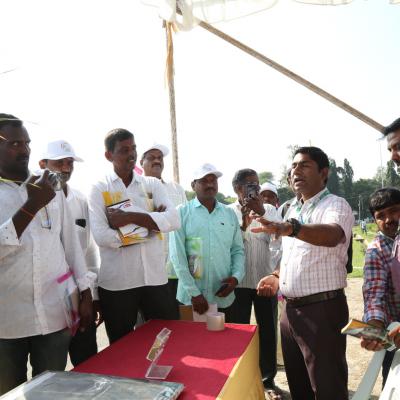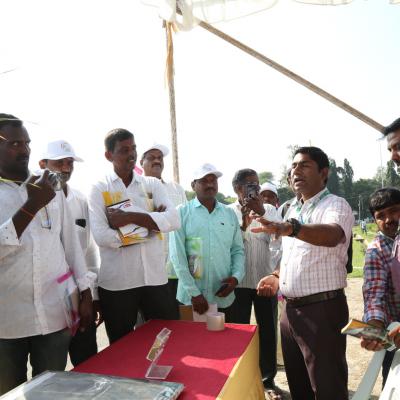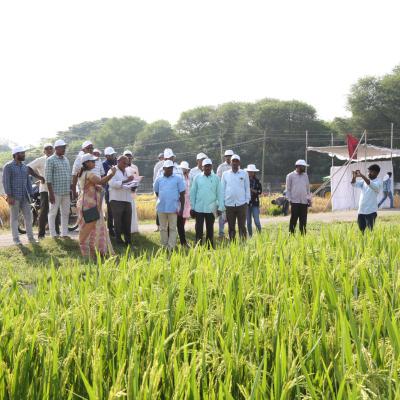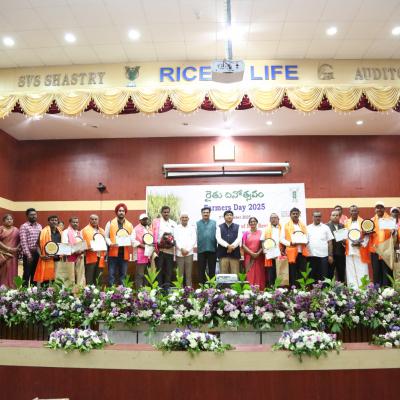DRR Dhan 100 (Kamala) has been developed by Dr. Satendra Kumar Mangrauthia and team at ICAR-IIRR in the genetic background of the widely cultivated Samba Mahsuri. A novel allele of a cytokinin oxidase/dehydrogenase gene was generated using targeted genome editing to modulate cytokinin metabolism. This strategic modification has led to enhanced reproductive development, resulting in a significantly higher grain number per panicle. Field evaluations conducted across multiple agroecological zones demonstrated a mean yield increase of 19% over Samba Mahsuri, early maturity, (a trait beneficial for crop rotation and risk mitigation in rainfed systems). Importantly, DRR Dhan 100 (Kamala) possesses a strong culm, providing superior lodging resistance, a crucial trait under high-input and climate-variable environments. Furthermore, the variety has shown moderate drought tolerance and sustained performance under low nitrogen and phosphorus inputs, attributable to a more robust root system architecture (RSA), making it suitable for resource-constrained and climate-stressed farming systems. These attributes collectively enhance its adaptability and productivity, making it a strong candidate for widespread adoption in major rice-growing regions.
Hon’ble Union Minister for Agriculture and Farmers Welfare, Shri Shivraj Singh Chauhan felicitated the scientists Drs Satendra Kumar Mangrauthia, R M Sundaram, C N Neeraja, S V Sai Prasad, Abdul Fiyaz and team. While felicitating the scientists, Shri Shivraj Singh Chauhan highlighted the transformative role of genome editing in delivering next-generation varietal solutions. He emphasized that such innovations are pivotal for enhancing farmers' income, climate resilience, and national food security. He reaffirmed the government's support for enabling policy frameworks that promote science-led growth in agriculture.
The successful release of DRR Dhan 100 (Kamala) and Pusa Rice DST1 marks a new era in Indian crop improvement, showcasing the power of functional genomics, precision breeding, and regulatory-compliant innovation. As India joins the global front-runners in deploying genome-edited crops, these varieties stand as exemplars of scientific excellence aligned with national priorities in sustainable and climate-smart agriculture.
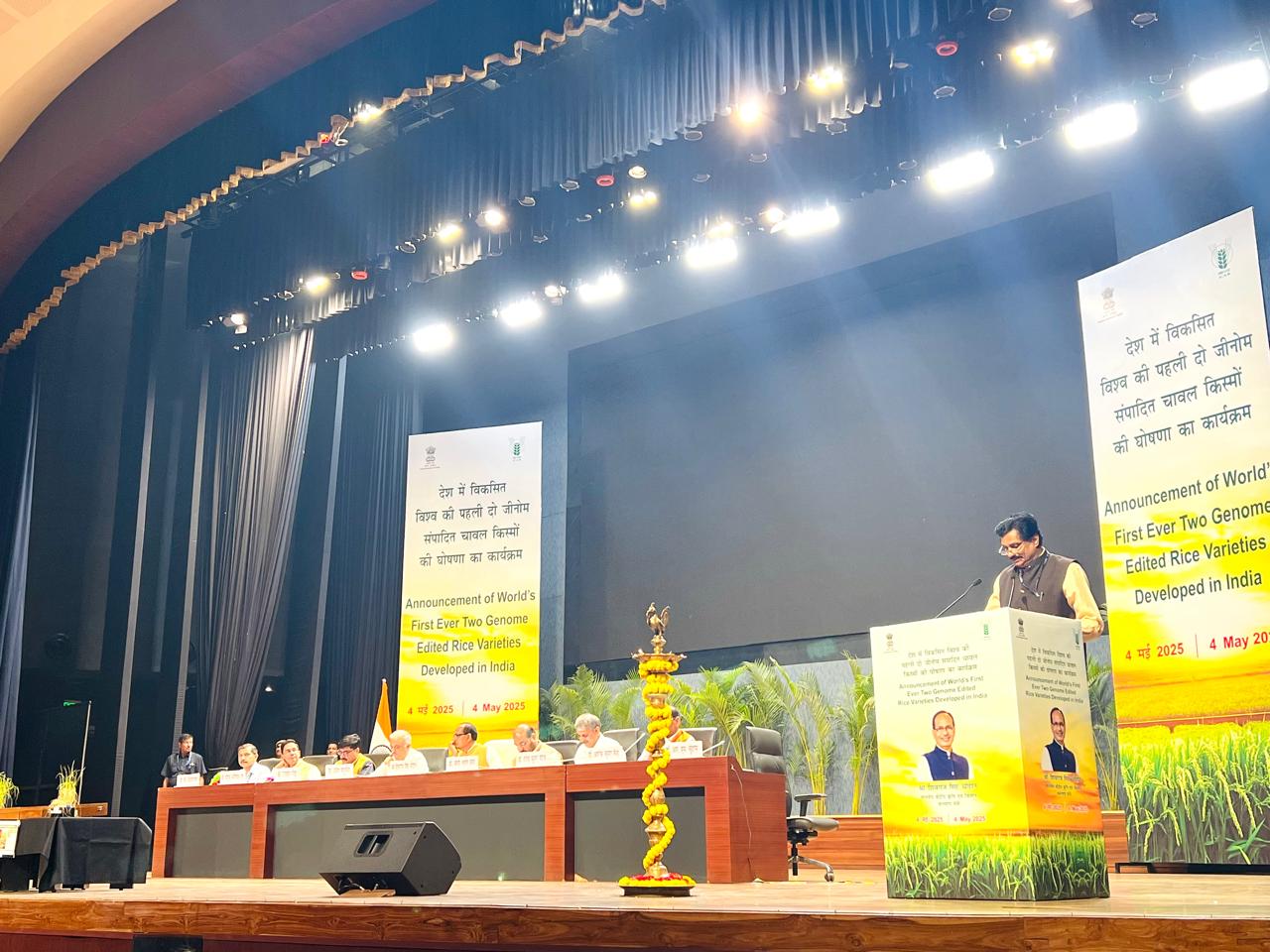 |
|
|
|
|
